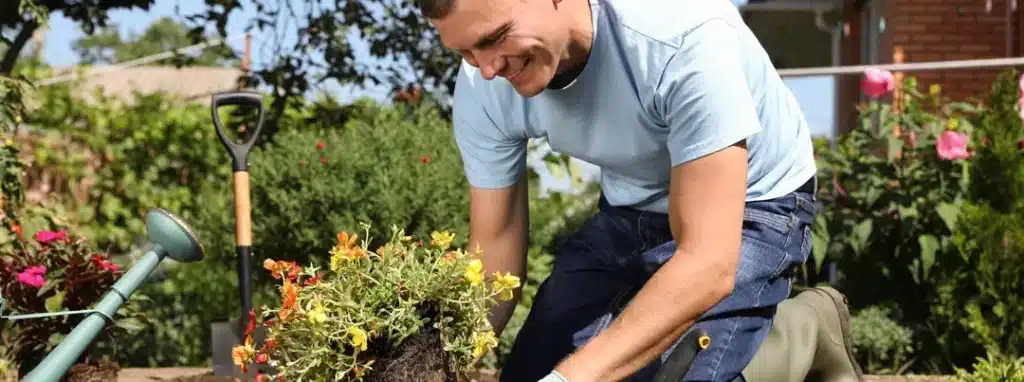A Look Into the Many Positives of Stopping Marijuana Use
The benefits of quitting weed are numerous, and you will see quick improvements in your overall well-being. Legalized marijuana became the law of the land in Arizona in 2021; but that does not mean that marijuana addiction is any less dangerous. Because it’s legal, many ask: Is marijuana addictive? The simple answer is yes, it can be for many people.
And those who develop marijuana dependence can still develop problematic use despite its legalization.
Consider the veneer of legality in terms of another substance use disorder: alcohol use disorder. Alcohol has been legal for adults over 21 in Arizona for decades. Still, those who develop substance abuse issues can see some harmful impacts from drinking too much. It harms their personal relationships, puts them at a higher risk of reckless behaviors, and impairs cognitive function.
The same could be said for marijuana use disorder. The legality of smoking weed does not mean that some people will not struggle. It doesn’t mean that casual use in social settings cannot spiral out of control, especially for anyone predisposed to risky or addictive behaviors.
Would you like to stop smoking weed? Please read on for expert advice on the benefits of quitting weed. And let us know if you need support, the entire staff here at Purposes Healing Center hopes you will allow us to help you quit smoking weed to enjoy better overall physical health and mental health!
Why Can Marijuana Use Lead to Weed Addiction?
People start smoking weed for different reasons. Some use recreationally to feel they “fit in” socially. Still, others may have chronic conditions, and they tried it for the first time with the blessing of well-intended healthcare professionals.
After trying it, some people just find it hard to quit weed. That’s true whether they smoke weed, use portable vape pens, munch on edibles, or use dabs. It seems that marijuana is everywhere and in so many forms, from legal retail dispensaries.
The common ingredient in each – the thing that leads one to marijuana addiction – is tetrahydrocannabinol or THC. THC releases dopamine, which activates the brain’s internal reward system. That chemical release is what causes the high that many find pleasant.
Certain Factors Can Make Cannabis Dependence More Likely
However, some people have a greater risk of drug abuse, whether to weed or other substances. This includes anyone with a genetic predisposition to substance abuse, such as a person with parents who struggle with addiction. It can also lead to problems for anyone with mental health disorders, like anxiety and depression.
People with mental health issues might start needing to use even more marijuana for it to help them forget about their problems – that’s called marijuana dependence.
The term dependence means someone must use more of a drug and in always increasing amounts to get the same high. In the case of smoking weed, it’s the relaxed, chilled-out feeling after using. That ever-increasing use – and the reliance on the feeling afterward – is what creates chronic marijuana users.
Quitting Marijuana: The Marijuana Withdrawal Symptoms

Now that you have a better understanding of why smoking marijuana can become dangerous for many, you’ll easily understand why it can be challenging to quit marijuana. Here are the cannabis withdrawal symptoms that some people quitting weed may have:
- Irritable behaviors and mood swings
- Disrupted sleep patterns (sleeping too much or too little)
- Appetite changes
- Cravings for marijuana
- Sweating and chills
- Anxiety and depression
- Tremors or shaking
- Physical discomfort symptoms (stomach pain, chills, or headaches) that feel like the flu.
Especially with frequent cannabis use, you should not try to quit smoking weed at home or without professional help. A licensed healthcare facility can oversee a medical detox. They’ll monitor your well-being and can prescribe medicine if you experience withdrawal symptoms.
15 Known and Proven Benefits of Quitting Weed
Keep reading to learn about the benefits of quitting weed. It’s fascinating to see how quitting marijuana can lead to a range of both mental health and physical health improvements.
If you decide you need help while reading this post, please contact us at Purpose Healing Center anytime. We have drug rehab facilities in Scottsdale or Phoenix. Our capable staff is always here to answer questions confidentially and without any judgment. We can provide expert care for marijuana use disorder and any other mental health issues.
1) Enjoy Improved Lung Function and Better Respiratory Health and Lungs
Marijuana smoke can lead to a weaker respiratory system and lower lung capacity. As a result, you may have challenging illnesses of the lungs. These may include chronic bronchitis or a persistent cough.
Fortunately, many of these respiratory issues can clear up when you quit cannabis use. Your lungs can heal from the marijuana smoke damage over time. You will breathe much easier once you restore your respiratory health.
2) Stop Smoking Marijuana for Improved Memory
Long-term marijuana use can lead to a decrease in cognitive function or cause forgetfulness. For instance, you might notice that you often misplace things after cannabis use. This impaired memory happens because THC, the chemical mentioned earlier, interrupts the work of the brain’s hippocampus.
The hippocampus processes short-term memory and converts it into long-term storage. When interrupted by drug abuse, that system can go haywire and cause people to forget things.
3) Have Better Sleep Patterns (Have Vivid Dreams Again!)

Those who abuse marijuana can experience a sleep quality decline. Marijuana users spend less time in REM sleep – the stage when dreaming occurs. That interruption to REM cycles can also lead to fewer dreams. Sleep quality also impacts insomnia at night and, thus, daytime drowsiness.
The negative effects that happen when drugs disrupt sleep patterns can be far-reaching. For example, consider how drowsy driving often leads to an increased risk of an accident.
4) Restore Your Interpersonal Relationships
When marijuana use gets out of control, personal relationships can suffer. Relationships take hard work. So when someone puts all their energy into getting drugs and using, other areas of their lives suffer. That may lead to eventual social isolation.
However, you can rebuild the most important of these relationships after you heal your addiction. You will learn the tools to repair them in counseling. A therapist can also help you decide which relationships are worth fixing. Your enabling friends who still use? No.
The colleagues who can help you get your career back on track? Yes.
Finally, you will also benefit from following the 12-Step system of the Narcotics Anonymous (NA) program to help restore these bonds.
5) Stop the Paranoia That Often Stems from Marijuana
Those who quit marijuana often feel relieved to learn that they feel less paranoid when they get clean and sober. THC alters your sensory perception, which causes heightened anxiety and distorted thinking. That combination leads to fear and mistrust, the building blocks of paranoia.
Conversely, quitting marijuana can quickly reverse those negative thoughts. Soon after the withdrawal symptoms subside, they will lessen. Things will continue to look brighter as you continue with ongoing therapy under the care of a qualified professional.
6) Quitting Marijuana Leads to a Healthy Cardiovascular System
Stopping marijuana use can increase cardiovascular health. Marijuana can challenge the cardiovascular system, including both heart rate and blood pressure. It also lowers cardiovascular health by impeding blood vessel function.
Long-term marijuana abuse can cause high blood pressure, heart attacks, or strokes. Quitting marijuana under professional care is a must if you have any heart or circulatory system disorders
7) Quitting Weed for Better Mental Health

Those who have been using illicit substances to cope with mental or behavioral health disorders can get well again. The key to improved mental health is combining psychotherapy by qualified healthcare professionals and ending drug abuse.
Those who quit smoking weed but don’t have a current mental illness have a decreased risk of developing any of these issues when they stop.
8) Stop Smoking Weed to Avoid Additional Illegal Drug Use
Many famously call marijuana a “gateway drug.” Although that term is largely discredited, ‘herb’ earned that name because it is often a user’s first foray into the world of substance abuse. The CDC notes that some evidence suggests that marijuana users may move on to harder drugs.
The CDC also mentions that the likelihood of addiction increases with additional risk factors, such as the following:
- Socioeconomic status
- The presence of additional mental illnesses (co-occurring disorders)
- Family history of addiction or substance abuse
- Social isolation
- Loneliness
- Lack of a family support system
- Drug availability
These factors can worsen cannabis use disorder – or an addiction to almost all other addictive substances.
9) Quit Cannabis Consumption for Greater Mental Clarity
After smoking weed, most people feel chill and calm. But that relaxed feeling is the THC interrupting your brain’s neurotransmitters. It can impair your concentration and how you focus your attention (if you can at all!). The result is a decrease in your mental clarity until you get sober.
10) Quit Marijuana for Healthier Skin Appearance
One of the most unexpected benefits of quitting weed is healthier skin. Smoking weed can cause your skin to dehydrate and look crepey. It also constricts your blood vessels and makes it look duller.
When you stop using cannabis, you will start seeing visible improvements. First, your skin will become more supple again as it rehydrates. Second, your blood vessels will go back to normal, and your skin will start to glow.
Additionally, for some users, cannabis can worsen the desire to pick at one’s skin, and stopping can help one to avoid this compulsive behavior pattern.
11) Stop Using Addictive Substances to End Mood Swings

The cycle of getting high on marijuana followed by the onset of withdrawal symptoms a few hours later can lead to mood swings. Remember that the THC rewires your brain’s reward system and becomes a source of pleasure.
Once the weed starts metabolizing and leaves your system, the cycle goes into reverse. That leads you to the moody, irritable part of the cycle. Furthermore, it drives you to use it again.
Quitting marijuana can lift you up and help you enjoy the aspects of life that might have gone unnoticed previously.
12) Reconnect with Family Members After Struggling with Drug Abuse
Did your family turn away from you when you started using cannabis? Even though it’s legal to smoke weed, some people don’t care to enable drug misuse and will turn away. That is a blow – it’s the loss of a critical form of emotional support.
However, once families realize that you are making an honest effort to get back on track, they will be more likely to welcome you back into the fold. One helpful tool is Al-Anon – these support groups are specifically for families of people who struggle with addictions.
13) Coping Mechanisms Developed When Quitting Marijuana Are Lifelong Tools
The personal growth you will find during addiction recovery is yours to keep for life. No matter what road you walk down next, you have the tools you’ve learned, and nobody can take them away. After getting help for substance use disorders, you will know how to identify triggers and avoid them.
You will know positive coping strategies to keep you safe when you can’t avoid them. The best part is that these tools are not only for drug addiction treatment – you can apply them in almost every facet of your life.
14) You’ll Feel Increased Motivation for Other Success
Once you break through the haze of addiction, your self-esteem will soar like never before. It all starts with baby steps. The success you feel after overcoming marijuana withdrawal will lead you to give addiction treatment your all.
Then, you will feel empowered during the aftercare and in planning for happiness and even greater success than you had imagined for the rest of your life!
15) Replace Marijuana Use with Fascinating New Hobbies

Those with marijuana use disorder often spend inordinate amounts of time planning to acquire and then getting the drug, whether from legal retail dispensaries or street dealers. After getting cannabis, those who abuse it also spend inordinate amounts of time smoking weed or vaping it.
When you break this cycle, you can return to more productive pastimes; having a hobby or two leads you to a healthy lifestyle and helps you better manage your stress.
Reach Out to Purpose for Help to Quit Smoking Weed
Purpose Healing Center is here to help if you are ready to quit weed. We have two addiction treatment centers, Phoenix and Scottsdale. Our drug and alcohol rehab centers are havens where you will receive customized, effective addiction treatment for cannabis use disorder.
Our staff is here to help you with this process. Our goal is to help you return to a safe place of overall well-being and happiness. Please contact the Purpose Healing Center team if you need assistance verifying your insurance benefits or have general questions about the process.



